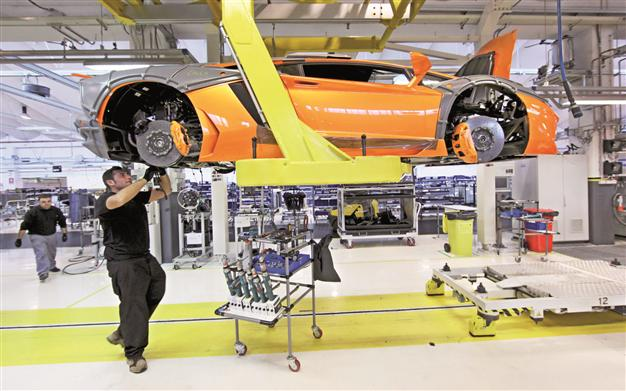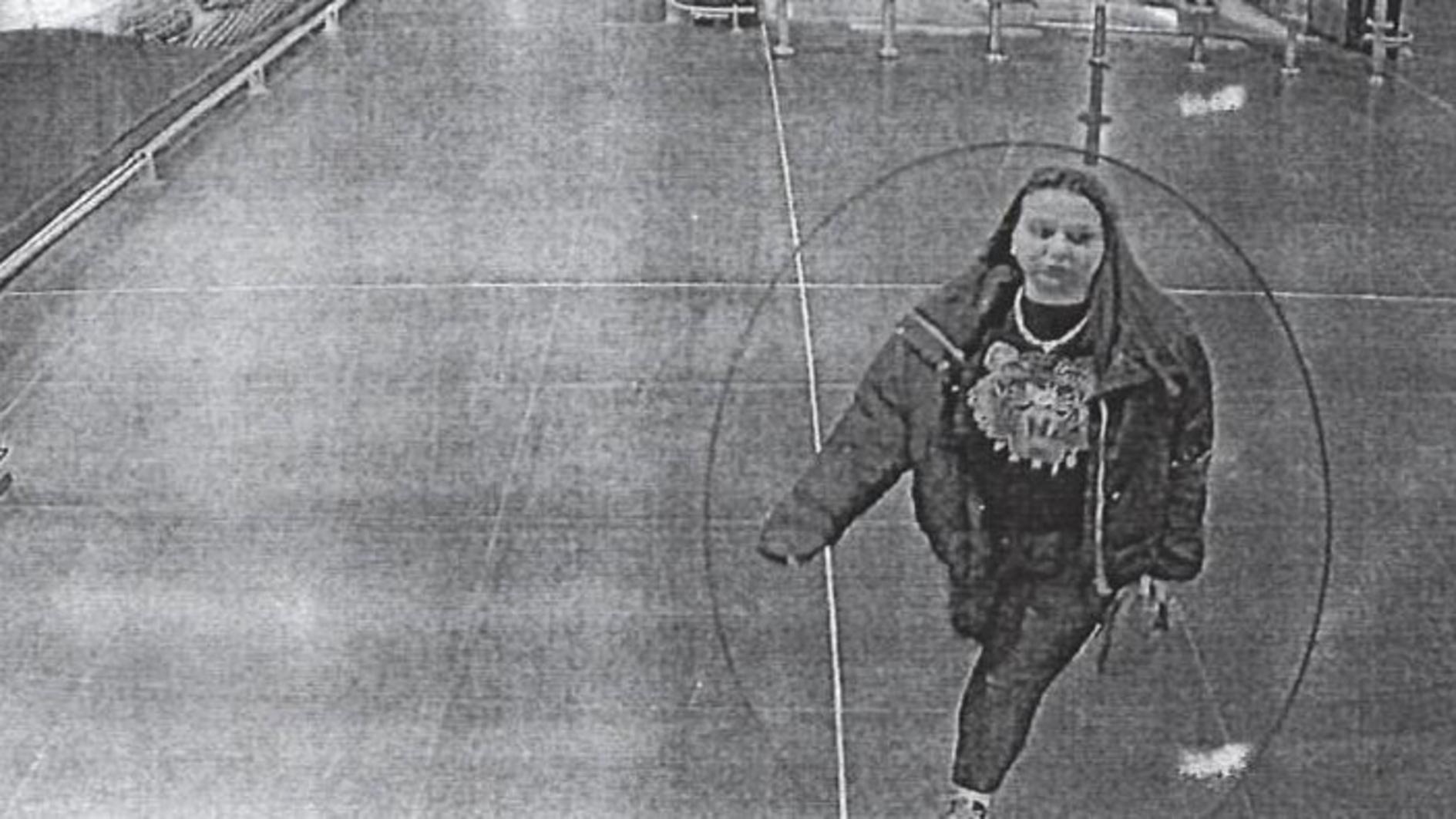Eurozone private sector slowdown bodes ill for growth, survey shows
LONDON - Reuters

A worker is seen at a production line in a Lamborghini factory in Italy’s Sant’agata Bolognese Nov 15. The private sector in the eurozone shrunk for a third month, a survey says. REUTERS photo
The eurozone’s private sector contracted for a third month in November as a downturn that started in periphery countries has spread to core members of the currency bloc, surveys showed yesterday.
The surveys point to the eurozone economy shrinking 0.5-0.6 percent in the fourth quarter, after 0.2 percent growth in the third quarter, data compiler Markit said, and suggest things are unlikely to improve anytime soon.
While the bloc’s dominant service sector contracted less than expected this month, its manufacturing sector, which fuelled a large part of the last recovery, shrank more than thought as output fell to its lowest level since mid-2009.
The Flash Markit Eurozone Services Purchasing Managers’ Index (PMI), which tracks business activity at thousands of firms across the 17-nation bloc, rose to 47.8 this month from October’s 46.4, beating expectations for 46.5. But this is the third month the index has been below the 50 mark that divides growth from contraction.
‘Weak start to new year’
The business expectations index fell to 52.5 from October’s 52.7 and its weakest showing since March 2009 which was not long after the bloc had passed the darkest point in the last recession.
“That indicator continued to come down which doesn’t auger well for the sector and suggests that service sector growth will continue to weaken,” Williamson said. “Alongside a manufacturing weakness it is setting the scene for a weak start to the new year. One of the worrying signs in manufacturing is that the rate of decline is gathering momentum.”
The eurozone’s manufacturing PMI fell to 46.4 in November from 47.1 last month, its lowest reading since July 2009. The output index, which feeds into the broader composite survey that combines manufacturing and services, fell to 45.8 from 46.6 in October.
Worryingly, part of that remaining activity was driven by firms winding down backlogs of work at the fastest pace since June 2009, with the index falling to 43.6 from 44.
Germany, the bloc’s backbone, saw a deeper contraction in its manufacturing sector than was expected this month but its service sector confounded economists by growing rather than stagnating, earlier data showed.
It was a similar scenario in France, the eurozone’s second largest economy, with its service sector PMI remaining sub-50 but bouncing to 49.3 from 44.6 whereas its manufacturing index fell to 47.6 from 48.5.
“It very much looks like Germany and France have been infected by the debt crisis worries,” said Chris Williamson at Markit.
The eurozone composite PMI, often used as a barometer of growth, nudged up to 47.2 in November from October’s 28-month low of 46.5.
“There is a heightened risk of contraction in the fourth quarter. It’s depending on what happens in December but on the basis of new orders still falling and confidence low we are going to see another month of contraction,” Williamson said.
But despite the lack of new business firms passed on some of the rising input costs to consumers with the output price index rising to 50.4 this month from 49.2.
Inflation held at 3 percent for a second month in October, but economists said it had probably peaked and would soon fall, giving the European Central Bank room to cut interest rates
















